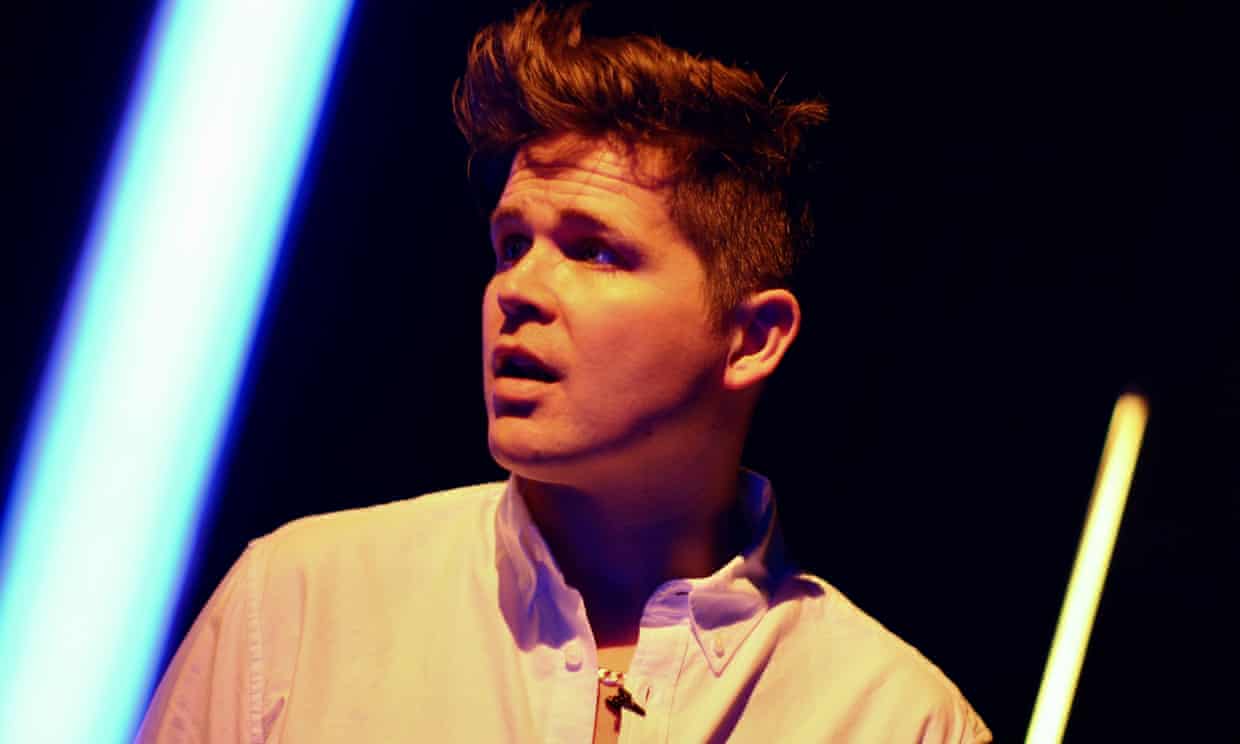
Theatre
The Remains of Logan Dankworth review – a poet for our day
Pound Arts Centre, Corsham
Luke Wright’s eloquent verse monologue pairs Brexit with the breakdown of a marriage
by Arifa AkbarLuke Wright is a poet for our day and today in particular. This dramatic monologue, spoken in verse, is soaked with political – and marital – malaise. It takes us from the death of Jo Cox to Boris Johnson, Nigel Farage, the EU referendum and the age of Brexit, alongside its picture of a slowly crumbling marriage.
This is the third in Wright’s trilogy of political verse plays and it is an artful cross between spoken word, standup and the soapbox. Having previously explored Thatcherism and New Labour, this one sees a character called Logan Dankworth rise from student politics to mainstream political punditry.
Logan is full of ironies: a middle-class mockney who hams up his estuary accent; an opinion-shaper who lacks any core beliefs; and a rising star whose career success comes at the price of a failing marriage. He is prepared to make the sacrifice, it seems, and by the end he appears more like the Kinks’ Plastic Man than the man of the people he wants to be – though he has enough mournful self-awareness to retain our compassion.
Parallels between the breakdown of the country and family life are never strained but both crises hover around him on opposing axes. Wright describes the latter with painful pithiness, from the “Rubik’s cube of a shared calendar” with his wife to their nightly ritual of eating chocolate in front of the TV that “passes for intimacy”.
Wright is an established figure in spoken-word poetry: he has been the warm-up act to the Libertines and co-programmed the poetry arena for Latitude (he curates the spoken word strand for Edinburgh international book festival now). Patti Smith is quoted as calling him a “cool poet”. But Wright’s performance is anything but cool: it is human, vulnerable, eminently honest and very, very eloquent.
There is some sensational writing in this show, from the suburban home his wife wants to move to in Southend, described as redbrick estates that “look like satire”, to his friend’s “clammy ham hands” and “blokes who are tooled up with opinions” on Twitter.
Its rhythm is mesmerising, too, and Wright paces his storytelling like a trainride, quickening to exhilaration, slowing to pathos, and always keeping us with him. In under an hour, he manages to create a panoply of voices and an entirely recognisable central character.
Wright stands in an empty space resembling a modern-day church and the plain staging works, on the whole, though Joe Price’s lighting dips, rises and changes colour unsubtly. But even that can’t distract us from Wright’s brilliance. If there is a failing, it is simultaneously a strength: the dramatic arc of Logan Dankworth is not big or long enough and we are left wanting more.
- Touring until 29 July.